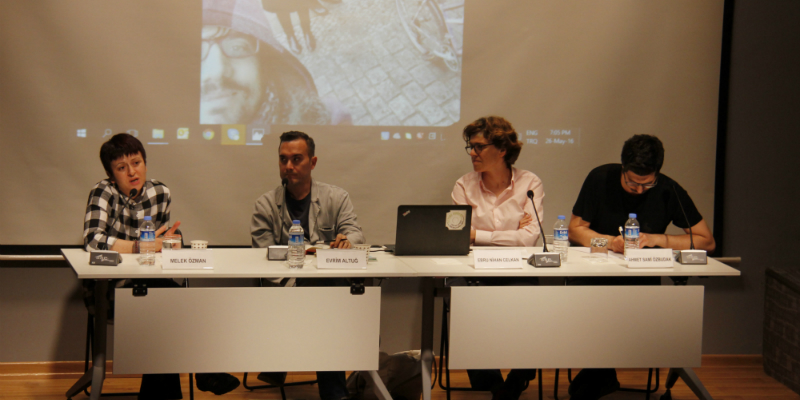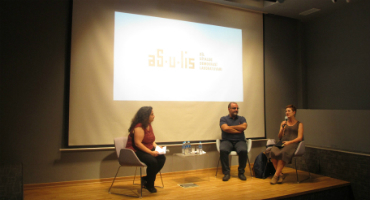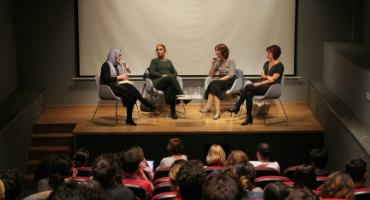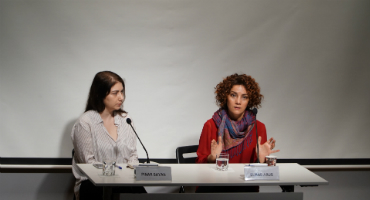The first event of the Hrant Dink Foundation’s ASULIS Discourse, Dialogue, Democracy Laboratory, “Art and Discrimination” took place at Anarad Hığutyun Building on the May 27 2016. The panel, moderated by Evrim Altuğ the chief of Culture-Art Service of Cumhuriyet Newspaper was held with the participation of Ebru Nihan Celkan, member of Bulut Theatre community and a scriptwriter, Melek Özman, director of short films and documentaries from Filmmor, and scriptwriter Ahmet Sami Özbudak. During the panel, speakers discussed and share their own experiences on how theatre and cinema can be used as a tool for combatting agains discrimination.
Firstly, Ebru Nihan Celkan talked about the journey of her own theater group. She discussed how they analyze the plays scripts and the characters and how they confront the discrimination in the process of dramaturgy. She indicated that they prepare their play starting from the problem of how we are aware of the discrimination that exists in our region, and moreover they found the opportunity to question their own attitude towards discrimination when staging a play. She mentioned that there is not a single miracle solution to deal with the discrimination but Celkan suggested that the collective thinking and production could be an effective method to struggle with the discrimination.
Afterwards Ahmet Sami Özbudak talked about how his inspiration comes from the history and the reality of the city when he writes the story of marginalized characters of his own plays. Özbudak emphasized that this method is effective to not to reproduce discrimination. In conclusion, Özbudak said that theatre transforms even the most acute issues by filtering them through naïvety. Thus, he highlighted theater’s importance in the struggle against discrimination as a tool of confrontation with the conscience of the audience.
Finally, Melek Özman talked about how cinema is a tool of self-expression for women. On the other hand, she emphasized on the decrease of women’s positions in the film sector as a result of the discovery of political and economical power of cinema. She mentioned that the purpose of Filmmor is to find the women’s own history. She said that the important questions for the movies are by whom they made and for which audience and finally in which language they speak. Therefore, the main purpose of the feminist art against discrimination is to speak its own languange and to break the hierarchy between these languages.






